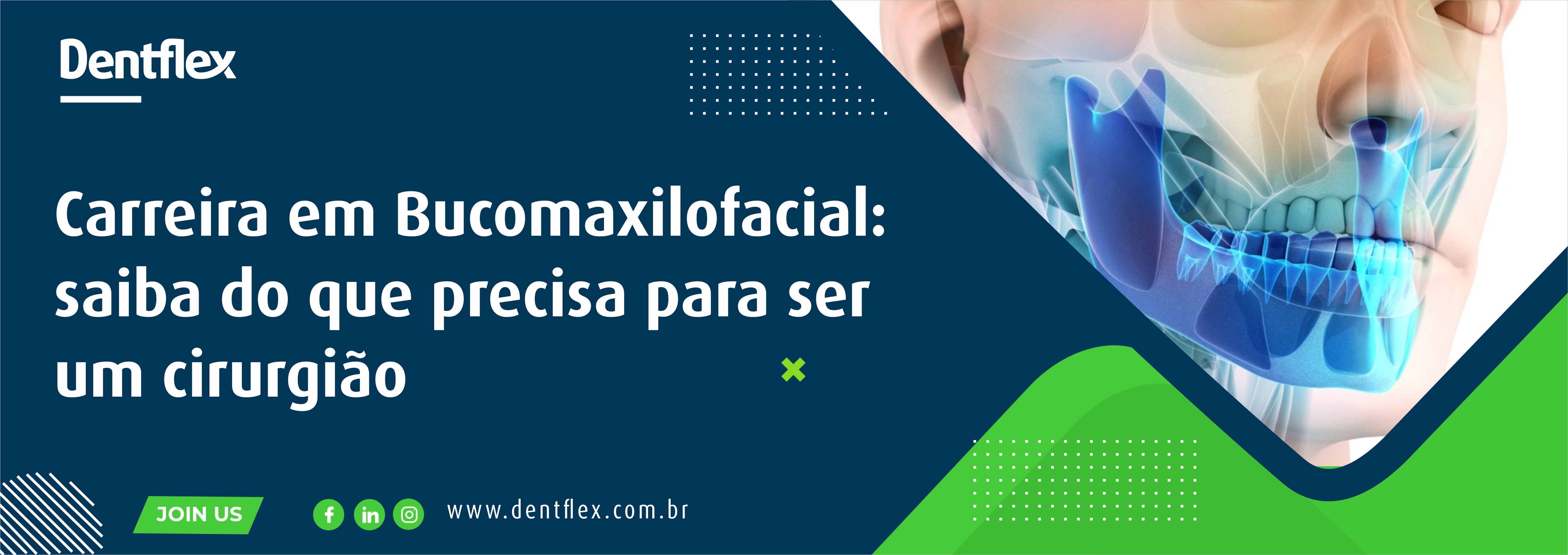Maxillofacial Career: know what you need to be a surgeon

The dream of many dentists upon graduation is to pursue a career in maxillary mouth. Do you know how to follow this path? Do you know what are the opportunities in this specialty of dentistry? What to do, specialization or residency?
The area of maxillofacial surgeon has become broad and many regions of the country offer the residency course, many with a scholarship guaranteed by the Ministry of Health. In addition, it has become a great opportunity for professional stability, especially for those who have recently left college .
Today we bring you an article with all the information you need to know to take the right path in your career in maxillofacial. In this article we will address:
- The career in maxillofacial
- Areas of expertise of the professional
- Matters most frequently asked for in residency tests
- Most popular residencies in dentistry
- Average salary of the professional
- Start your preparation now!
The career in Bucomaxilo
Maxillofacial Surgery and Traumatology is the specialty that aims at the diagnosis and surgical and adjuvant treatment of congenital and acquired diseases, traumas and anomalies of the masticatory system and associated craniofacial structures and attachments, involving the region between the hyoid bone and the anterior wall of the frontal sinus from bottom to top, and from the tragus to the nasal pyramid, from the back to the front.
Among the diseases, there are tumors, jaw cysts, manifestations associated with systemic diseases such as AIDS, tuberculosis and syphilis, among others. Facial deformities range from the sequelae of diseases, such as cancer (severe trauma), to developmental disorders (such as syndromes) or developmental changes, such as prognathism (enlarged jaws) and micrognathism (reduced jaws), or a combination of them.
Maxillofacial surgery is performed in an outpatient or inpatient setting. Minor surgeries are performed in outpatient clinics, mostly under local anesthesia, where impacted teeth, small benign tumors, cysts, periapical lesions, dental implants and surgeries for prosthetic adaptations, among others, are removed.
The main paths that the dental surgeon can take to become a specialist in maxillofacial surgery involve:
- Multiprofessional Residency: postgraduate education modality, in the form of a specialization course. Working in health institutions such as teaching hospitals, graduate students perform paid professional activities under the guidance of specialists (preceptors). theory and 80% practice. In addition, the resident is entitled to 30 days of annual vacation and, depending on the institution, a monthly stipend of R$3,330.43. The program regime is exclusive dedication.
- Specialization: the specialization courses have a minimum workload of 360 hours, with no definition of a maximum workload. The frequency of the specialization must be at least 75% of scheduled activities, and completion of course work or monograph is required for the student's final approval. In addition, one of the main aspects that differentiate the specialization from the residency is: students pay for the course, in the form of monthly fees.
- Public examinations: The professional and financial stability of the candidate is the main advantage of this career after completing the specialization or residency course.
- Private clinic: The professional also has the option of attending to simpler cases, such as extractions or removal of small cysts and biopsies, or pre-surgical assistance in private clinics.
- Academic/teaching career: This is also an option for the maxillofacial professional, involving the master's and doctoral areas and teaching in courses, colleges or related to research.
Professional areas of activity
How is the work of the MaxilloFacial Surgeon performed?
The areas of competence for the specialist in Oral and Maxillofacial Surgery and Traumatology to work include: implants, grafts, transplants and reimplantations; biopsies; surgery with a prosthetic purpose; surgery for orthodontic purposes; orthognathic surgery; diagnosis and surgical treatment of cysts; root and periradicular disorders; salivary gland diseases; temporomandibular joint diseases; injuries of traumatic origin in the maxillofacial area; congenital or acquired malformations of the jaws and mandibles; benign tumors of the oral cavity; malignant tumors of the oral cavity, when the specialist must work as part of an oncologist team; and, of neurological disorder, with maxillofacial manifestation, in collaboration with a neurologist or neurosurgeon.
Matters most frequently asked for in residency tests
Not sure what to study for the residency exams? Do not worry! We have separated for you the most demanded subjects in the main competitions in the country, by percentage. Check it out! There is still time to study:
- PATHOLOGY / STOMATOLOGY: 32%
- IMPLANTODONTICS: 4.9%
- CTBMF: 31.8%
- PRINCIPLES OF SURGERY: 3.2%
- DENTOALVEOLAR SURGERY: 5.2%
- TRAUMATOLOGY: 23.4%
- BIOSAFETY: 0.9%
- EMERGENCIES AND EMERGENCIES: 6.7%
- PHARMACOLOGY: 11.5%
- IMAGE EXAMINATION: 0.5%
- ANATOMY: 11.5%
Most popular residences in maxillofacial
There are currently several residency programs in oral and maxillofacial surgery and traumatology in Brazil. The residency programs generally offer 2 to 3 places per year, with a course duration of 3 years and on an exclusive dedication basis.
Professional salary average
A Dental Surgeon – Maxillofacial Traumatologist earns an average of R$ 3,785.53 in the Brazilian labor market for a 24-hour workweek. The salary range of the Dental Surgeon – Maxillofacial Traumatologist is between R$3,455.01 (average of the 2019 salary floor of agreements, collective agreements and collective bargaining), R$ 3,594.00 (median research salary) and the salary cap of R$ 5,720 .81, taking into account professionals with a formal contract under the CLT regime throughout Brazil.
Is there a difference in the salary of the maxillofacial exam?
Without a doubt, following a successful career as a Dental Surgeon – Maxillofacial Traumatologist is a great choice, since the salary in the public sector is about 2% higher than the average salary in the private sector.
The salary of a Dental Surgeon – Maxillofacial Traumatologist with an examination is R$ 3,873.00 for a 31-hour week, according to data from 9 professionals hired by public tender for municipal, state or federal agencies.
Source: Sanar Saúde. Available at: https://www.sanarsaude.com/portal/carreiras/artigos-noticias/carreira-buco-cirurgiao-dicas-odontologia. Access on: 09/01/2021.
